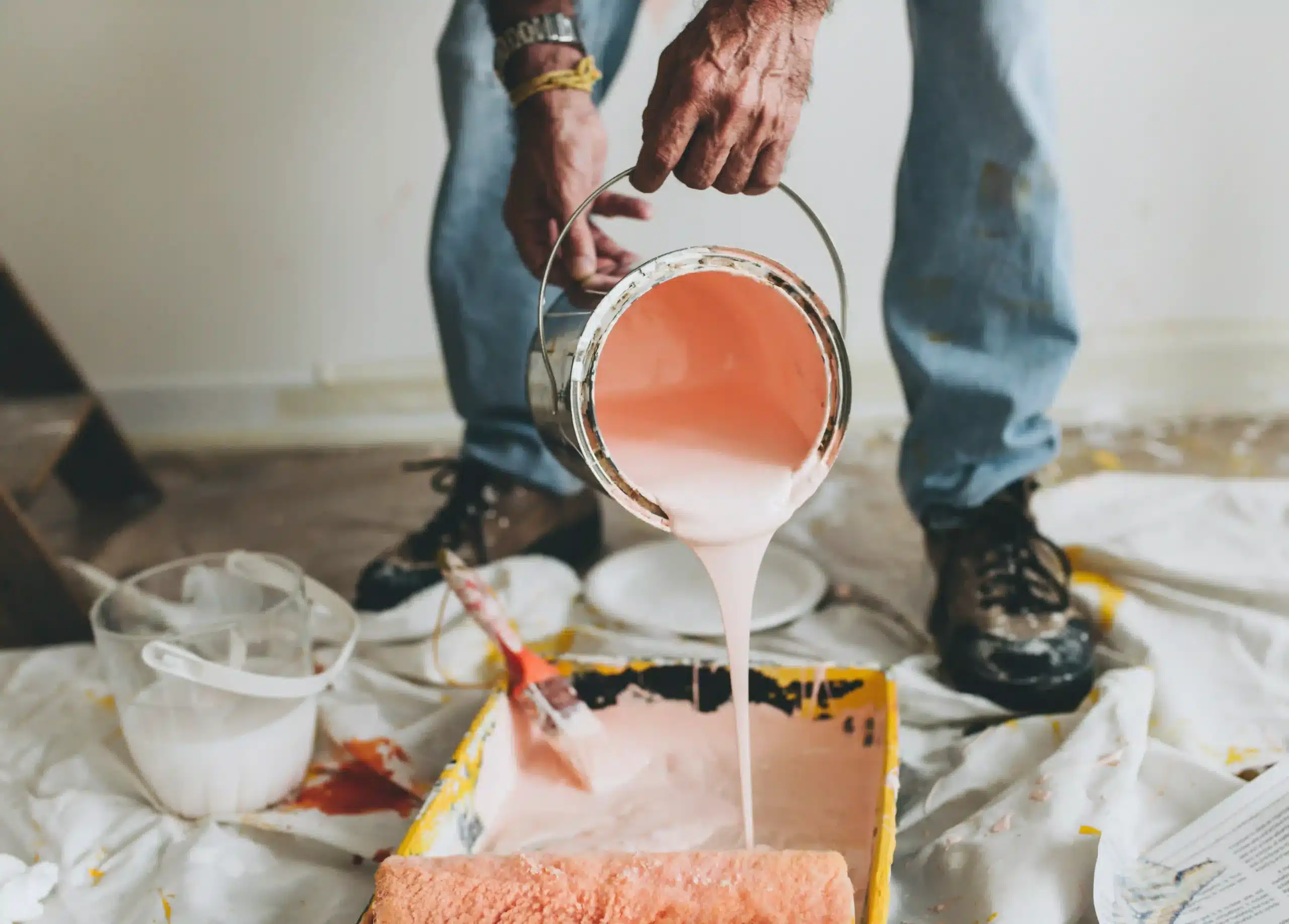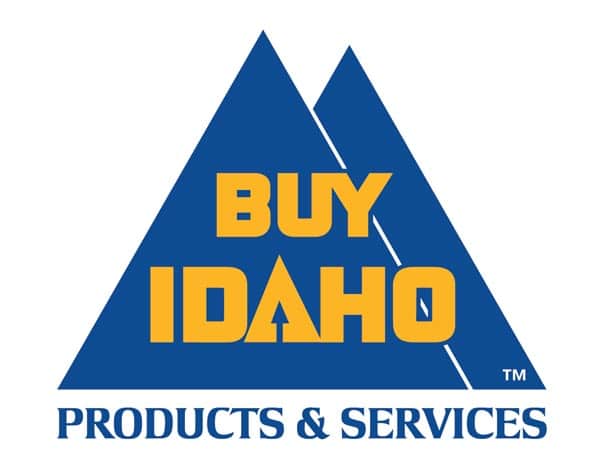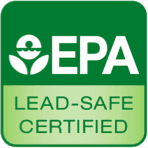Traditional painters have long trusted alkyd paint for projects that need to last decades rather than years. This paint creates tough finishes that resist wear and damage. Many homeowners might skip over alkyd paint at the store because they think all paints work the same way. But competent contractors still choose alkyd paint when clients want professional results that won’t need touch-ups every few years. This article covers what alkyd paint is, where to use it, the different types you can buy, and why it works so well for tough painting jobs.
What is Alkyd Paint?
Alkyd paint is a durable coating that creates a hard, glossy finish perfect for high-traffic areas throughout the house. Many call it oil-based alkyd paint, but technically, it uses synthetic alkyd resins instead of natural oil. The name “alkyd” comes from the mixture of alcohol and acid chemicals to form special resins that strengthen the paint. This paint is a go-to choice for trim, doors, and cabinets because it keeps its shine and stands up to daily wear and cleaning.
What is Alkyd Paint Used For?
Alkyd paint works best on surfaces that get touched often and need to look good for years to come. Interior trim, baseboards, and doors are perfect spots to use alkyd paint because it resists nicks and scratches while staying easy to clean. Enamel alkyd paint excels in kitchens and bathrooms where moisture resistance matters most, making cabinet doors and walls easy to wipe down. For furniture and built-ins, alkyd spray paint delivers a smooth, professional-level finish that looks like it came from a factory. This paint sticks well to most surfaces without needing lots of prep work, which means less sanding and priming and a durable finish.
Features of Alkyd Paint
Alkyd paints are popular for their balanced combination of strength and versatility. Here are the key features that define alkyd paints:
1. Composition
Alkyd paints derive their name from two major chemical components: alkyl (from alcohol) and acid. The paint’s foundation starts when glycerol, a type of alcohol, is combined with phthalic anhydride, which is an acid compound. This chemical reaction creates the resin that holds everything together in the paint. Besides this resin, alkyd paints also contain solvents like mineral spirits to help with spreading, metal compounds that help the paint dry faster, and pigments that give the paint its color and help it cover surfaces properly.
2. Durability
Oil-based alkyd paint creates a strong, protective layer that can handle everyday wear and weather conditions. This tough coating resists damage from scratches, moisture, and regular cleaning without breaking down easily. This strong protection makes these paints perfect for busy areas like doors, window trim, and outdoor surfaces that get used frequently.
3. Finishes & Shine
Alkyd paints can create different looks depending on how shiny you want the final result to be. High-gloss versions have more resin, providing a very smooth and shiny finish. These shinier paints are also stronger and easier to wipe clean than the flatter versions.
4. Odor
Regular alkyd paints have a strong odor when you apply them and while they dry because of chemicals called volatile organic compounds (VOCs). They also contain aldehydes and other chemicals that are released into the air as they dry. Water-based alkyd paint products have been formulated to reduce these strong smells while maintaining their durability. Even with these new formulas, it’s still best to have good ventilation when painting indoors because the smell might linger for a few days.
5. Cost
Alkyd paints are an economical choice because they cover surfaces well and are less costly than other high-quality paints. One gallon will cover around 350 to 400 square feet, and the thick texture usually takes fewer coats to achieve good coverage. Although you’ll spend a little more to begin with than on standard paints, alkyd paints will last longer and need less upkeep, which saves money in the long run.
Advantages & Disadvantages of Alkyd Paint
Alkyd paints provide impressive benefits to any painting project, but they also have some drawbacks. Understanding these trade-offs allows you to decide if they’re right for your project.
Advantages
- Moisture Protection: Alkyd paints create an excellent seal against water damage. They’re perfect for spaces like bathrooms where humidity runs high.
- Professional Results: These paints naturally level themselves out during application, hiding small surface imperfections and brush strokes for a factory-smooth finish.
- Lasting Gloss: The shiny surface keeps its rich appearance for years without dulling or fading like cheaper alternatives often do.
- Quick Turnaround: While oil paint takes days to dry, alkyds dry in a much shorter time, so you can finish projects sooner.
- Universal Application: You can use these paints on wood, metal, or painted surfaces without worrying about compatibility.
- Strong Coverage: One gallon goes a long way and usually covers everything in fewer coats. This efficiency cuts down on both time and material expenses.
Disadvantages
- VOC Restrictions: Many cities and states now ban these paints for indoor use because they release harmful VOC content into the air.
- Difficult Cleanup: You need mineral spirits to clean brushes and tools, creating fire risks and hazardous waste disposal problems.
- Lingering Smell: The chemical odor sticks around for days, even after painting. That’s why you’ll need excellent ventilation.
- Messy Application: These paints splatter easily and leave permanent stains if you accidentally drip them on furniture or floors.
- Color Deterioration: Alkyd paint slowly turns yellow over months or years, especially in sunny rooms.
Types of Alkyd Paint
Alkyd paint colors come in many varieties, and each type is designed for different painting needs and applications. These types are primarily determined by how much oil they contain and what kind of special ingredients are added. These are the different types of alkyd paint you can choose:
1. Long Oil Alkyds
Long oil alkyds have the highest concentration of oil in their formula, typically between 55-70% of the total mixture. The high alkyd paint oil content makes them very flexible, so they can move without cracking when surfaces expand or shrink. These paints work best for outdoor projects like exterior house painting, wooden decks, and boat painting, where flexibility is important.
2. Medium Oil Alkyds
Medium oil alkyd paints have a moderate amount of oil, usually 45-55%. They dry faster but still offer good flexibility for most daily painting tasks. These paints are appropriate for both interior and exterior use when you need reliable protection without waiting too long for drying.
3. Short Oil Alkyds
Short oil alkyds have the lowest percentage of oil, usually below 40% of their total formulation. They dry the fastest and create a very durable finish that’s resistant to scratches and chemicals. Some of these paints need heat to cure properly and achieve their full strength. They’re ideal for industrial use, primer coats, and areas subject to heavy wear, like floors or machinery.
4. Water-based Alkyds
Water-based alkyds use water instead of chemical solvents. Water-based alkyd paint produces less smell and fewer harmful fumes while still giving you the durability that alkyd paints are known for. These are perfect for interior applications like furniture painting, trim, doors, and cabinets.
5. Acrylic-Alkyds
Acrylic-alkyd combines two different types of paint to get better results than either would deliver alone. These hybrid paints are ideal for high-quality interior work where you want both exceptional performance and a beautiful appearance.
6. Fast-Drying Alkyds
Fast-drying alkyds contain additives that allow them to dry considerably faster than regular alkyd paint. These paints are useful when you need to finish projects quickly or when the weather might spoil your painting schedule.
7. Anti-Rust Alkyds
Anti-rust alkyds are made specifically to prevent rust on metal surfaces and include special anti-rust ingredients. They stick well to metal and create a protective barrier against moisture.
Is Alkyd Paint the Best Option for You?
Alkyd paint works well if you’re someone who prefers doing a painting job once and forgetting about it for the next decade, especially since its synthetic resin formula actually gets tougher as it ages. The only challenging part is dealing with strong fumes and mineral spirit cleanup. At Boise Commercial & Residential Painting, our skilled house painters provide tailored painting services with high-quality products that leave you with lasting results. We have licensed, insured painters who use the highest quality, weather-resistant materials to ensure your paint job provides you with the expert finish you want. Call us today for a free estimate!











